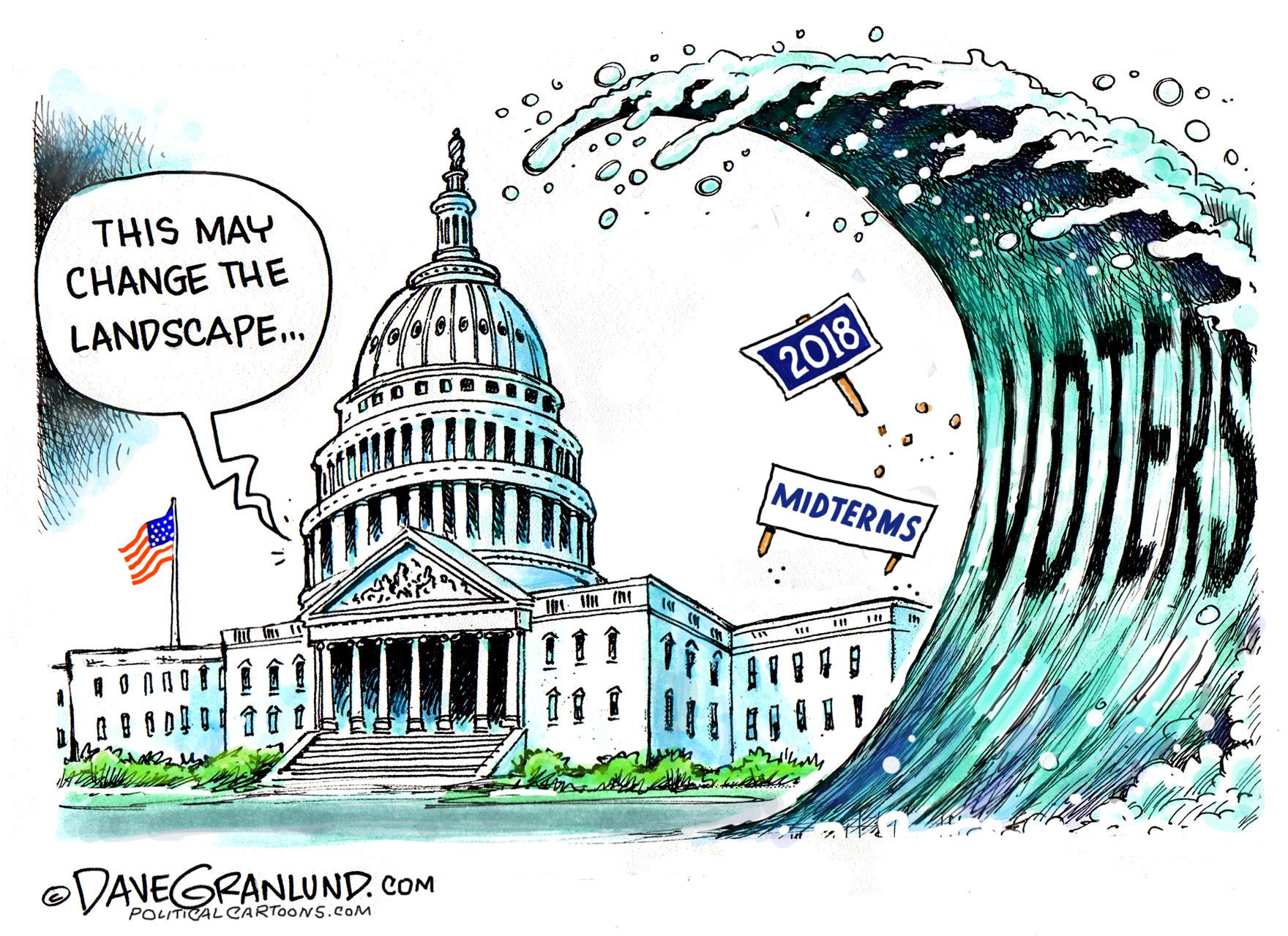BY RALPH NADER
 About 80 days separate the people from the Nov. 6 congressional elections. Judging by the past midterm turnout, at least 125 million age-eligible voters will stay home. Too many people say: “Can’t be bothered;” “politicians don’t care about me;” “all politicians lie so why should I be part of that game;” “I’m not into politics;” “Nobody I like.”
About 80 days separate the people from the Nov. 6 congressional elections. Judging by the past midterm turnout, at least 125 million age-eligible voters will stay home. Too many people say: “Can’t be bothered;” “politicians don’t care about me;” “all politicians lie so why should I be part of that game;” “I’m not into politics;” “Nobody I like.”
Whoever finds the way to bring 10 million or so of these non-voters to the polls in swing congressional districts will solidly control the Congress. Control of the House of Representatives by the Democratic Party stops most of Trumpism in its tracks, assuming the Democrats use their power and uphold their sworn duties in domestic and military/foreign matters under the Constitution.
Ten million non-voters becoming voters may not seem so decisive. Remember, however, that John Kerry lost to George W. Bush in 2004 by less than 90,000 votes just in Ohio. Donald Trump swung the key Electoral College votes in Pennsylvania, Michigan, and Wisconsin by a mere 107,000 votes.
Therefore, let’s ask the question: What’s it worth in costs compared to benefits? How do we achieve a progressive Congress, committed to the needs and rights of the American people and not beholden to the big corporations? A mere half a billion dollars would achieve that objective – about what the Koch Brothers’ network intends to spend this year.
The benefit of increasing the turnout of informed voters is a more enlightened Congress. A new and improved Congress could produce huge savings in dollars, lives, health, safety, and improve the environment. In addition, a new Congress could end boomeranging illegal wars, enact a long-overdue increased minimum wage, corporate tax reform, facilitate faster conversion to solar-renewable energy, and restore our public facilities with good local jobs. Our public transit, national parks, schools, highways, bridges, libraries, and community health clinics all need repairs. Ending massive, taxpayer-funded corporate welfare and taming the bloated, skyrocketing military budget that is devouring our public resources are also benefits of rebuilding a responsive Congress.
The list could go on, but permit a single example. Over a decade ago, it was revealed that a single disclosure line, put back in the tax forms filed by business partnerships, would end a loophole that has cost Uncle Sam anywhere from $7 billion to $20 billion a year in tax revenue. The corporate-indentured Congress refused to approve such a line and fund its implementation.
In the massive accounts receivable for big business that is our federal budget, you can pick and choose what can be saved were a super-majority of our 535 representatives and senators accountable to the voters and they definitely can be.
How would a half-billion dollars for voter education and mobilization be spent effectively? Not by using the same old ways of getting out the non-voters that have failed again and again.
First, most get-out-the-vote efforts target registered voters. Non-voters are considered, for the most part, too hard to convert into voters.
The reasons are obvious. You don’t get these conversions by the usual last-minute phone banks, post cards and door knocks. You have to have adequate time and you need engaged neighborhood people-to-people resources for at least several weeks to achieve those persuasions through relationships of trust and discussion and you may need transportation facilities. Voter suppression and registration barriers also need to be overcome one voter, one family at a time.
In the late 1880s, dirt-poor Texas farmers started one of the greatest political revolts/reforms in American history. Spreading into many other states, this populist surge – against the rapacity of banks, railroads and their political toadies – elected governors, took over state legislatures, installed members of Congress and almost won the presidency.
What did the farmers have? Their land, open minds, courage, heart, passion, energy, and the Post Office.
What did they lack? Money [other than the $1 dues from each Texas farmer], telephones, paved roads, motor vehicles, radio, television, and the internet. Yet somehow they pulled it off and we’re benefiting this day from their electoral, economic, and pro-farmer-labor reforms.
At present, every neighborhood, housing project, and community has what political analysts call “influentials,” long known and trusted people who can be persuasive in converting non-voters to voters. Two thousand full-time organizers can spark these “influentials” into action – if the organizers have the financial resources to pay for necessary expenses, arrange potluck suppers, and provide transportation to the polls.
Backup support by people skilled in administration, law, accounting, recruitment, public relations, and media would accelerate the pace and minimize pitfalls. Moving people together in buses to the polls followed by celebratory dinners increases the spirit, the elan of what would likely become a widely publicized movement, extending beyond Election Day, replete with visuals, posters, special songs, and even empowering parades.
Five billionaires could provide the money with one resolute meeting! Our country has more than that number of concerned philanthropists with records of enlightenment. They are worried about the downward direction of our country and what it means to the children and grandchildren, and to our precious environment, to our need for stable peace. They want to be good ancestors. They can make a very quick decision and start making it happen.
Are any possible benefactors listening? If so, contact us at nader.org.







